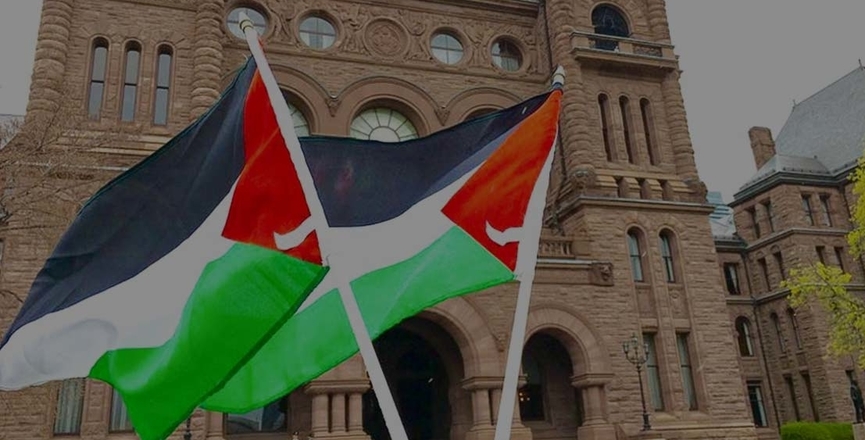The Ontario government’s October 26 implementation of the controversial International Holocaust Remembrance Alliance (IHRA) definition of anti-Semitism through an order-in-council has led to questions about what this actually means.
Deputy Attorney General David Corbett has answered several of those in correspondence with the Canadian human rights organization, Just Peace Advocates.
Corbett stated that Ontario Order in Council 1450/2020 “reflects the endorsement of the Lieutenant Governor in Council of the working definition of Antisemitism, as adopted by the International Holocaust Remembrance Alliance on May 26, 2016.”
Corbett further clarified in a letter on November 13, 2020 to Just Peace Advocates that the order-in-council “reflects the decision of the government of Ontario to adopt that definition for matters within the discretion of a Ministry of the Crown.” (my emphasis)
The deputy attorney general continued, “It does not otherwise alter any legal definition of antisemitism that may be set out in existing or future laws of Ontario, nor does it direct or require that entities that operate independent of the government adopt that same definition.”
In the correspondence, Corbett indicated that “the Order does not otherwise impact any decision of the Legislative Assembly with respect to Bill 168. The Legislative Assembly operates entirely independent of the Executive Branch of Government and will make its own determination on the status and progress of trust Bill.”
Bill 168, if passed into legislation, would require the government of Ontario to be guided by the International Holocaust Remembrance Alliance (IHRA) working definition of anti-semitism.
When the IHRA introduced the definition, they stressed that it was only a “working definition,” and “non-legally binding.”
However, Bill 168 proposes to ignore the IHRA’s own caution and insert this working definition directly into the act, which would give it formal legal effect.
Crobett’s comments seem to confirm that Order in Council 1450/2020 — made by royal prerogative, and which is not tied to any legislation — is intended to direct the actions of the ministries of the Ontario government. Corbett suggested that if there are other questions it would be most appropriate to seek that advice through legal counsel.
It is unlikely Bill 168 will be withdrawn, but given the public hearings of the justice policy standing committee planned for October 28 and 30 were cancelled on October 27, there have been some thoughts that the bill would be left to die on the order paper, as do many private member bills.
To the contrary, it would seem those who have concerns about IHRA passing into law should remain vigilant about what may be happening at the justice policy standing committee and any move to introduce this legislation to the third and final reading.
Currently, multiple access to information requests have been submitted to several key ministries to determine what the process and analysis was in regard to the implementation of the order in council, and other matters related to IHRA.
A review of the transcripts point to efforts by Conservative members to have the meetings “in camera.” The motion to move “in camera” for the October 22 meeting was lost with protests by Conservative members that their MPP colleague Effie Triantafilopoulos had not been able to get onto the Zoom call due to a technical issue that in the end turned out to be due to her misplacing the password.
During the October 22 meeting, NDP members of the justice policy committee indicated concern about the limited time for the hearings, with NDP member Monique Taylor confirming her office had received over 3,000 emails from each side of this bill.
Clearly, MPPs were quite taken back by the huge amount of interest in this bill. MPP Collard said “I didn’t realize the extent of the interest that might be brought on this bill, but I have to admit that my phone has been ringing off the hook since this morning, since, I guess, people have heard that the committee is reviewing this bill.”
In the end the committee added more time for the sponsors of the bill and the Opposition, but did not add more hearing times.
At the October 27 meeting, Opposition members pressed the session not be in camera. Taylor called for the public’s right to hear what was taking place in regard to a bill that has been railroaded through an order-in-council. The motion was defeated, and the meeting went in camera, leaving the public unaware of what was discussed.
Coming out of the meeting, the hearings scheduled for October 28 and October 30 were cancelled, leaving the public to wonder what was discussed in regard to the order-in-council or plans for Bill 168.
Over 30 civil society organizations have signed a statement coordinated by Just Peace Advocates condemning the IHRA implementation, outlining concerns related to it standing as a legal standard and how it could be abused to curb freedom of expression.
It seems that there will be much more focus on the end-run of the Ontario government’s order-in-council proclamation, and the still live Bill 168.
Karen Rodman is director with Just Peace Advocates, and a retired senior manager with more than 30 years of experience with the Ontario Public Service.
Image: Courtesy of Just Peace Advocates



